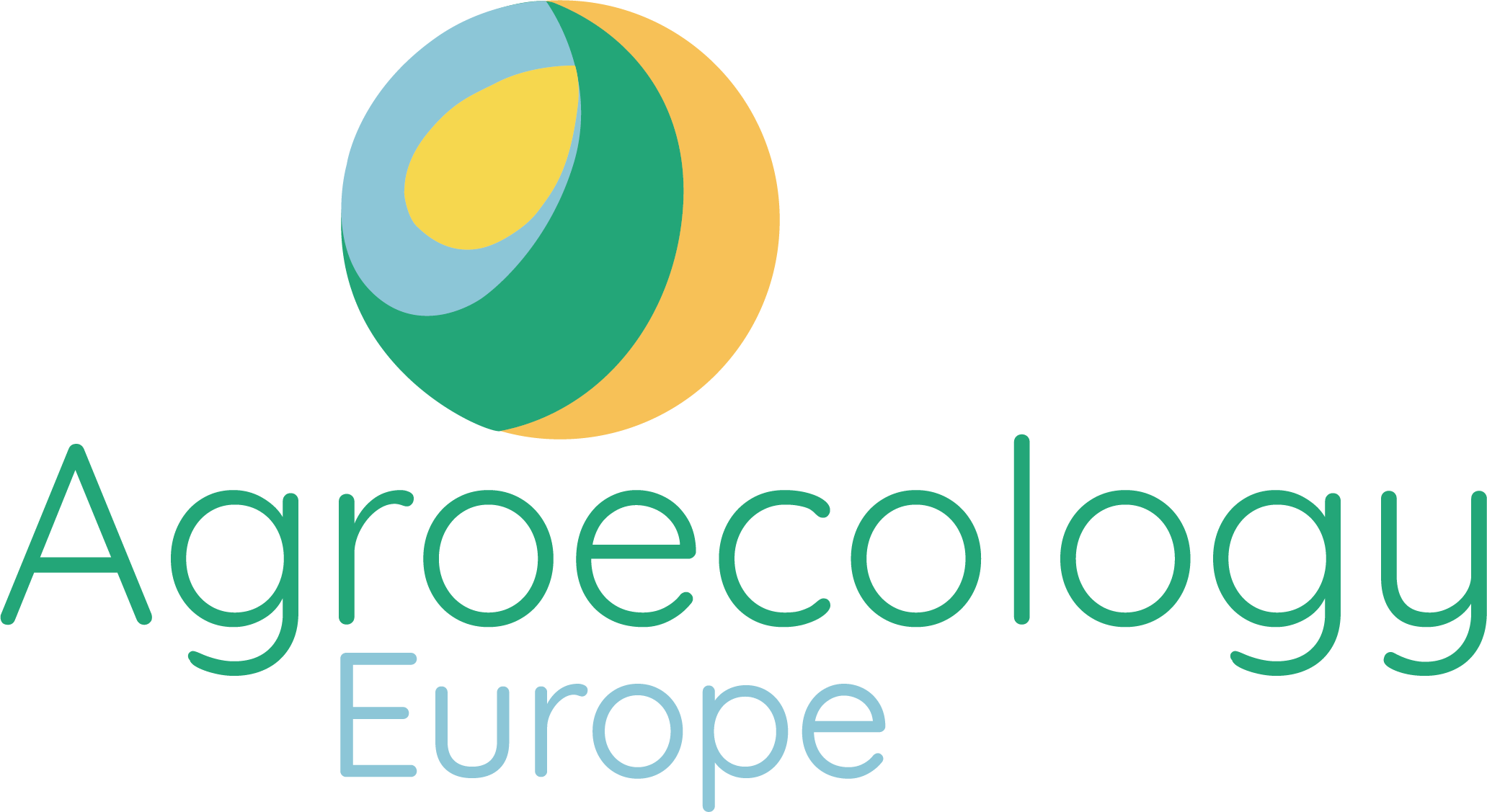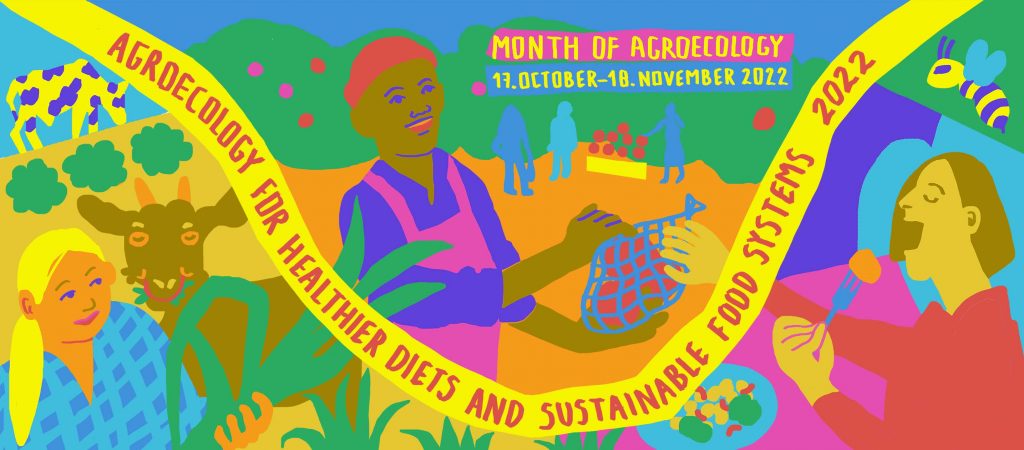Month of Agroecology
In order to meet the challenges of reducing greenhouse gas emissions, preserving biodiversity, and improving animal welfare, public health, and the rights of farmers, while ensuring food security and sovereignty, structural changes are as necessary and urgent on our fields as on our plates.
Dietary patterns and food habits are deeply rooted in social and cultural contexts but they can, and must, be addressed and transformed through public policies.
During the second edition of the Month of Agroecology 2022, which will be held from the 17th of October to the 18th of November, Agroecology Europe will draw on collective solutions and create pathways of reflection to instigate a change in our dietary patterns and allow a space for them to be the driving force we need for the transition. Agroecology is indeed the way to healthier, more sustainable and fairer food systems!
More legumes, better health, and environment!
Legumes and grain legumes (beans, peas, and clover, among others) have unique properties that help to restore the vitality of the soil through the addition of biologically fixed nitrogen. When introduced into a regular crop rotation, they can also break the development cycles of diseases, pests, and weeds, reducing the need for pesticides. Legumes not only make organic and agroecological farming more viable, they are an essential part of sustainable systems. For consumers, they provide proteins, amino acids, energy, fibre, and micronutrients, and can help to prevent chronic diseases such as diabetes and cancer. Despite the numerous benefits, grain legumes are currently under-represented in European agriculture and produced on only 1.5% of the arable land. Their consumption has been divided by four in 20 years. As a result, small farmers struggle to make money from them, even with value-added products.
A large number of issues will be addressed around this core topic during the Month of Agroecology through: several webinars, Interviews with key experts, share of articles and videos in order to exchange, learn and build together the future of more sustainable farming and food systems.
Why an agroecology month?
There is a clear momentum in favor of agroecology in Europe today. A scientific consensus seems to be emerging at the international level, and we are more and more citizens, farmers and researchers promoting agroecology as a desirable, viable and realistic transition path.
Would you like to share your inspiring content and projects on one of the principles? We would love to make this Month of Agroecology a space to share knowledge in our community! Send your suggestions by email to elena.ambuhl@agroecology-europe.org and secretariat@agroecology-europe.org
We are delighted to announce that this Month of Agroecology is organised simultaneously with the Days of Agroecology organised by the network Agroecology Works. We will have the pleasure to share their activities throughout our channels as well! To stay up to date on this and other agroecological initiatives, consider following Agroecology Europe on social media, with the #MonthofAgroecology2022 and #AgroecologyWorks.
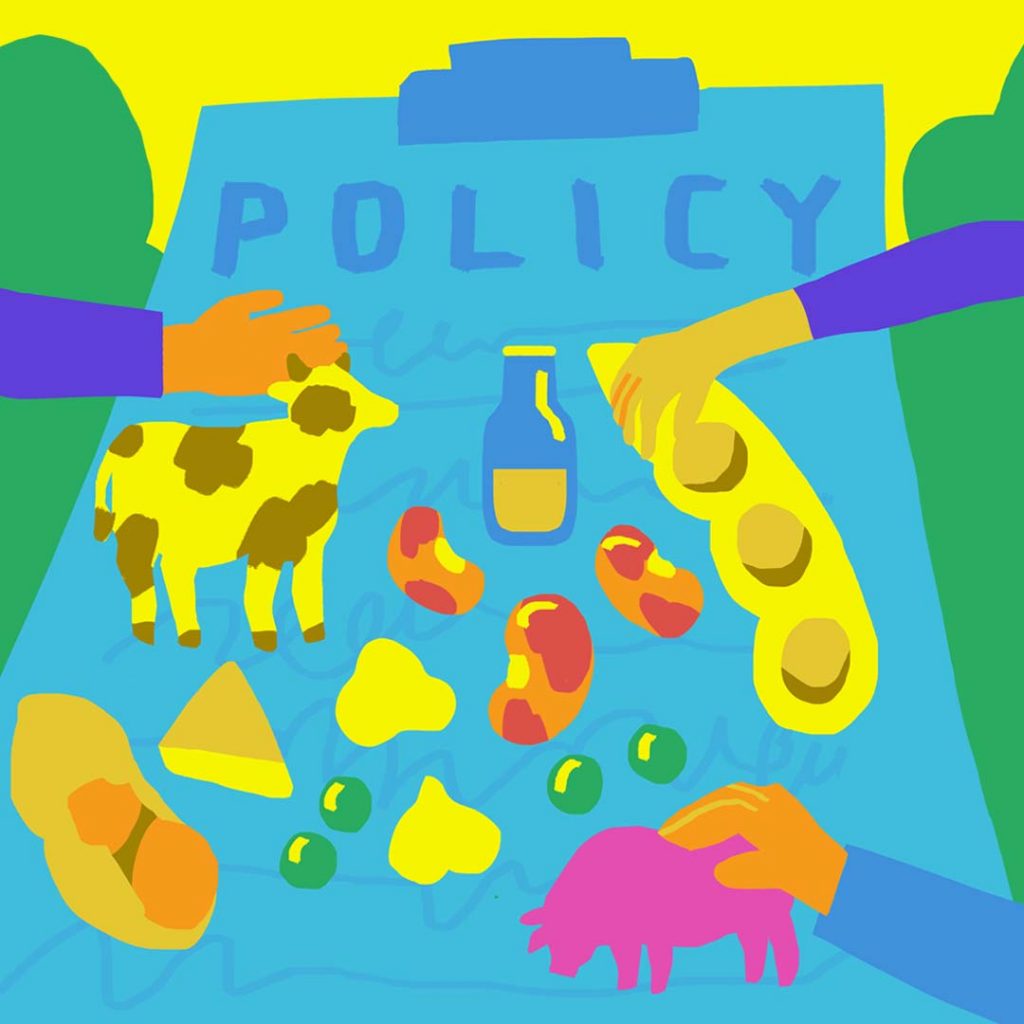
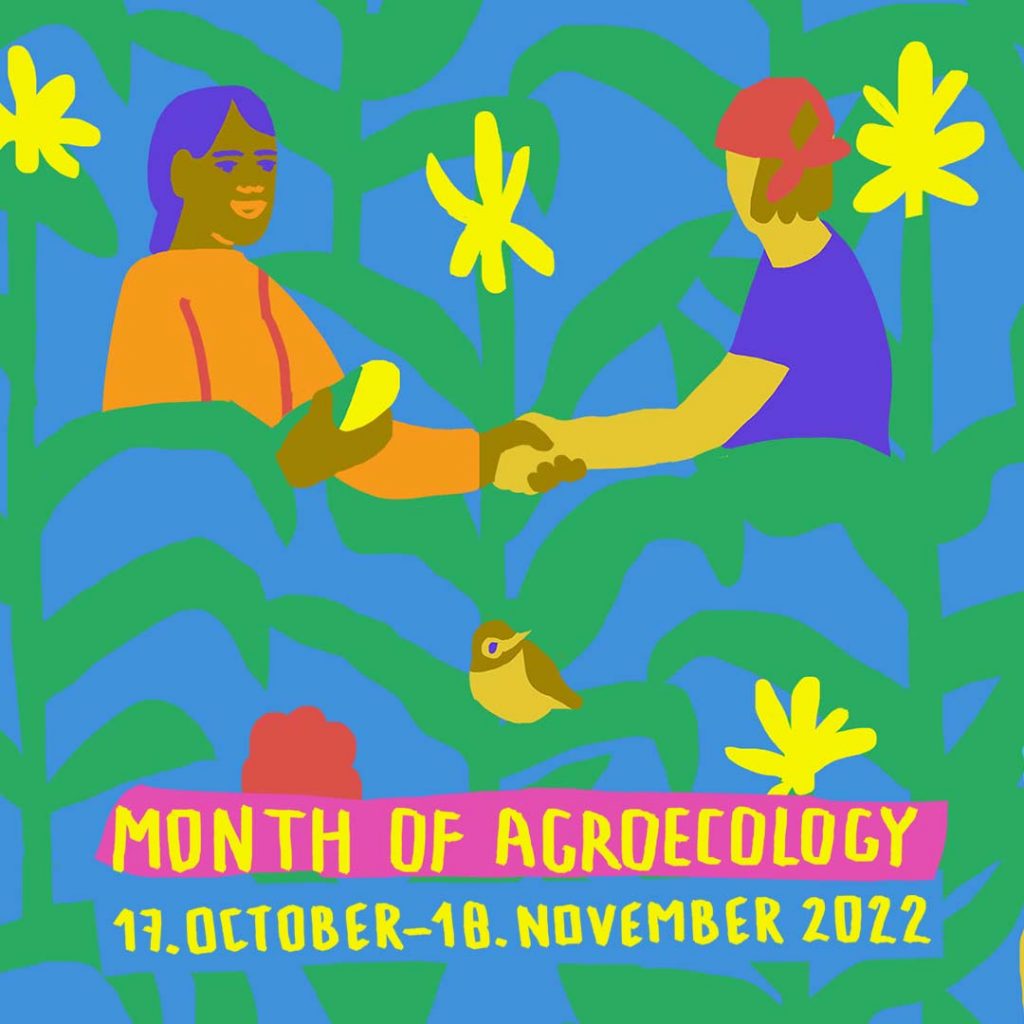
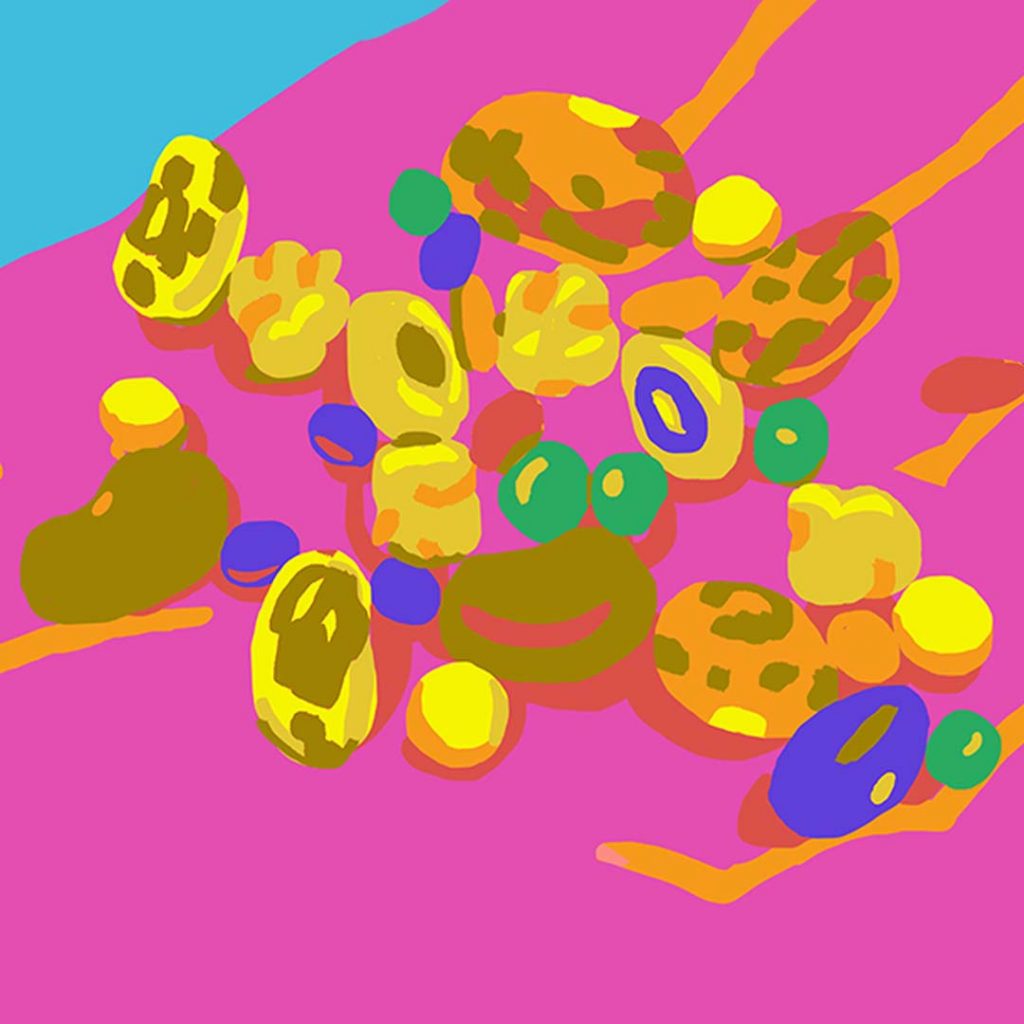
In order to meet the challenges of reducing greenhouse gas emissions, preserving biodiversity, and improving animal welfare, public health, and the rights of farmers, while ensuring food security and sovereignty, structural changes are as necessary and urgent on our fields as on our plates. During this Webinar, we will discuss with international experts and and peasant’s representatives how to achieve the protein transition by rebalancing the intakes between animal and plant proteins, and how to improving their quality and supply chains.
Speakers:
– Morgan Ody: Farmer and Global Coordinator of La Via Campesina
– Nick Jacobs: Director of IPES-Food (International Panel of Experts on Sustainable Food Systems)
– Xavier Poux: Associate researcher at IDDRI (Institute for Sustainable Development and International Relations)
Moderator:
– Caterina Batello, Board Member of Agroecology Europe
Webinar: "From Science to Action to accelerate the food system transformation"
The Webinar “From Science to Action to accelerate the food system transformation: What are the human and environmental health benefits of food cultivated with agroecological practices?” is presented by experts from the Coalition of Health professionals for Regenerative Agriculture. During this webinar, the speakers will present the global nutrient density movement, bridge the gap between nutrition and agriculture and present how agroecology can contribute to a one health approach integrating humans, animals and ecosystems.
Speakers:
– Cristina Laurenti (Italy): Board Member of Agroecology Europe Dietetics & Agroecology
– Raiza Rezende (Portugal): Naturopathic Nutrition and Regenerative Agriculture
– Zuzanna Zielinska (Holland / Poland): Nutrition & Project Management
– Eirini Tsirimokou (Greece/Spain): Consumer Behaviour & Education
Article: Agroecological transition in practice: How are citizens' initiatives driving food system change in the Berlin-Brandenburg region (Germany)
The Month of Agroecology 2022 organised by Agroecology Europe, aims to give visibility to initiatives and projects that intend to foster the agroecological transition throughout Europe and worldwide.
Agroecology Europe conducted an interview with José Luis Vicente Vicente and Beatrice Walthall from the Foodshift 2030 project, to learn more about the regional dynamics in the peri-urban area of Berlin, in the Brandenburg region.
What are the challenges of transitions in this area? How can we encourage citizen food initiatives and implement coherent public policies that support them?
FACTSHEET - Legumes are our best allies for the agroecological transition
Ahead of the EU food initiatives such as the Sustainable food system law, Agroecology Europe proposes to adopt a food system approach on transition and to give more visibility to systemic solutions to transform our agriculture and food and make them more sustainable, healthy and fair. Among these solutions, increasing the share of legumes in crop rotations and on our plates is a cornerstone of the agroecological transition and should represent a collective strategic effort initiated by ambitious public policies.
Let’s discover in this factsheet the multiple benefits of legumes for cropping-systems, citizen’s health and the environment.
Article - why legumes are necessary for the agroecological transition
Have a read at this in-deepth article written by Lucia Nicasto who led interviews with two agroecological farmers from Italy explaining the importance of legumes in their farming systems.
